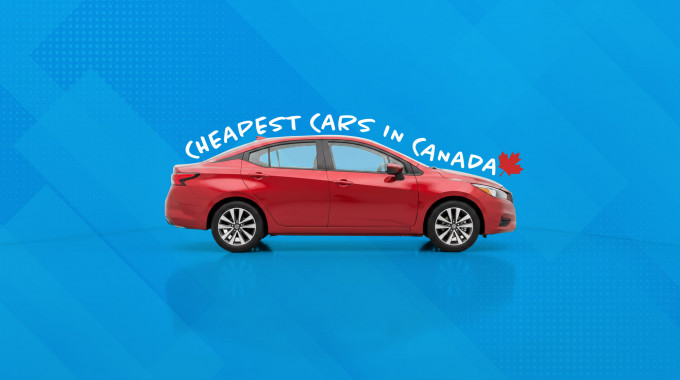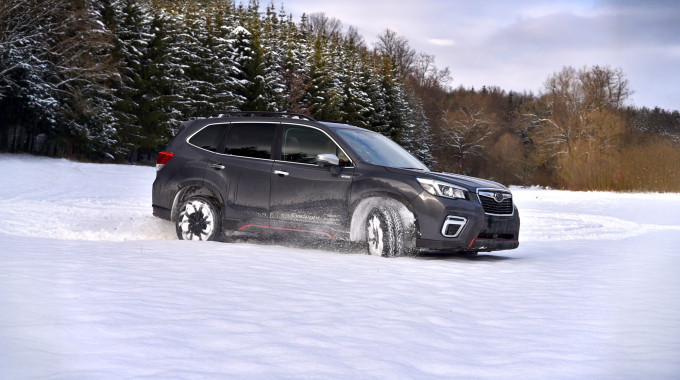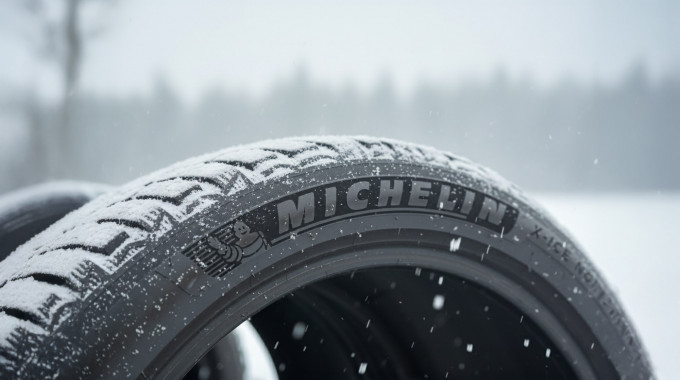
9 Questions to Ask Before Buying a Used Car
Buying a used car shouldn’t feel like you’re taking a gamble. Unfortunately—depending on where you buy the car—the information you need to make the right buying decision isn’t always readily available.
And if that information isn’t provided, you need to ask.
If you’re intimidated at the thought of going to see a car in person and meeting the dealer or seller, we’ve got you covered. Asking a few key questions will help you learn the most important information about the car you’re looking at. That way you can confidently make the decision to either buy it or keep looking.
Best questions to ask any used car seller
Whether you’re buying a used car from a dealership or private seller, these are the key questions you need the answers to.
1. What’s the year and mileage?
Here’s an easy-to-remember rule of thumb: a car will rack up about 20,000 km a year; anything higher is considered above average. So if the car you have your eye on is three years old, you might reasonably expect it to have around 60,000 km clocked.
If the mileage is higher than that, it could mean there’s more wear and tear to worry about, but it’s not a deal breaker. There are other factors to consider too, like how well the car was looked after by its previous owner, if it's been in any accidents or had any recalls, or if the vehicle is certified pre-owned (a question for dealerships only), all of which we discuss below.
2. Is the car currently experiencing any mechanical issues?
If you’re looking at used cars at a dealership, they have an obligation to disclose most damage or mechanical problems to you. But you should still ask your dealer if there’s any current issues at all—big or small—for each vehicle you’re considering.
With a private seller, you’ll want to press them on this question a bit. Smaller things may slip their mind, so ask a lot of follow up questions to jog their memory.
- Are all of the power windows working?
- Do you have issues starting the car in winter?
- Has it ever overheated or displayed the check engine light?
3. Has the car had any major repairs or recalls?
It’s important to learn as much as you can about the vehicle’s history, in particular whether it’s ever had any major repairs, either as the result of an accident, mechanical failure, or manufacturer defect.
Accidents can create chronic and long-lasting issues in a vehicle, so it’s important to know what kind of major work has been done on any car or truck you’re thinking about buying. Likewise, if there was a manufacturer recall to repair something faulty with the vehicle, you’ll want some confirmation on whether the work was done or not. If the model you’re looking at has been repeatedly recalled by the manufacturer, it might be more hassle than it’s worth.
4. Can I see the vehicle history report?
The best way to get a definitive answer on whether the vehicle has been in an accident or had some major repairs is to view a vehicle history report, such as CARFAX. Some dealerships will have this readily available for you to see, but some won’t provide it at all and very few private sellers will include it.
At Canada Drives, a CARFAX Vehicle History Report is readily available—with a single click—on the listing page for every single car and truck in our online inventory.
In addition to damage and accidents, CARFAX will also tell you other valuable details, including whether the car has ever been reported stolen or if there’s a lien on the vehicle.
5. Is there any cosmetic damage to know about?
Ask the seller to confirm if there’s any cosmetic damage inside or out before you arrange to view the vehicle. If there’s major cosmetic damage inside or out, you may want to save yourself the time.When you do view the car, thoroughly examine the interior and exterior, looking for scratches, dents, scuffs, rips in upholstery, and so on. A small dent in the body could be the sign of a minor accident, while a small stain on the interior could be the sign of water ingress.
Canada Drives offers an entire gallery of 30+ high resolution photographs for each vehicle—interior and exterior—so you won’t be surprised by an undisclosed scratch, stain, or dent when the vehicle arrives.
6. Can I see the maintenance records?
Many car owners take excellent care of their vehicles and have the paperwork to prove it. Ask to see any and all available records, from oil changes to transmission checks. A vehicle that has been well maintained is an indication of good health. If there are no maintenance records available, you could check the vehicle history report for previous service history.
If you want to make sure you’re buying something that has been routinely serviced and meticulously maintained, consider a gently used rental vehicle. At Canada Drives, many of the cars, SUVs, and trucks in our inventory are former rental vehicles for this very reason. Then we perform our own rigorous 150-point inspection and reconditioning to make sure every vehicle meets our high standard of quality.
7. Is this car still under warranty?
Vehicle warranties stay with the car, not the owner. So before you sign on the dotted line find out if the manufacturer’s warranty is still valid. A valid warranty means many mechanical repairs will be covered, until the warranty expires.
It's not a big deal if a car's warranty has expired, but it’s good to know before you buy. Most dealerships will be able to tell you this right away. For instance, Canada Drives includes warranty information right there on the vehicle description page. Additionally, you get a 30-day no-charge warranty protection, plus the option to add an extended warranty.
Find out the difference between a manufacturer warranty and an extended warranty.
8. Can I test drive the car?
Test drives should be non-negotiable. If a seller doesn’t let you take the vehicle for a spin, or is trying to rush you through a test drive, that’s a red flag. At worst, they might be trying to hide something from you. At best, you might end up with a vehicle you don’t feel 100% happy about.
At Canada Drives, we think test drives are so important that we include a free 7-day Love It Or Return It guarantee on every single vehicle. That means you can test own the vehicle for a week to see if it’s truly the right ride for you. If you don’t, we’ll come pick up the car and give you your money back.
9. Can I hire a mechanic to inspect this car?
It helps to get some expert advice before you buy. Ask the seller if you can take the vehicle to a mechanic of your choosing for an inspection. They’ll be able to give you a little more insight into the car’s current condition plus potential work that will need to be done in the future.
If you buy a vehicle from Canada Drives, this is a step you can do during your 7-day test own period. If there’s anything about the vehicle you don’t like—including feedback offered by your mechanic—you can return it for a full refund.
3 more questions to ask at a dealership
When you’re viewing vehicles at a dealership, be sure to also ask these additional questions in addition to the ones above.
1. Is this car certified pre-owned?
Used vehicles and certified pre-owned (CPO) vehicles are not the same thing.
Certified pre-owned vehicles are of a higher quality because each car is required to meet a certain age and mileage limit. It means only the best used cars get selected for an automaker or dealership’s CPO program. All certified pre-owned cars undergo a rigorous multipoint inspection process, receive professional reconditioning, and usually come with some type of warranty.
Unlike Canada Drives, where every vehicle in our inventory is certified pre-owned, some dealerships will sell a mix of used vehicles and certified pre-owned ones. Of course you can still find a quality used car that isn’t certified pre-owned, but if you want extra peace of mind ask your dealer about their CPO inventory.
2. Are there any extra fees I need to know about?
At many dealerships, the price you see on the vehicle (and the price you landed on in a verbal negotiation) may fall quite short of the final price you’re expected to pay. That’s because of hidden fees that can suddenly pop up during the final tally, such as a documentation fee or dealer preparation fee.
To avoid an unpleasant surprise, be direct and ask up front what all of the extra fees will be, if any.
3. Do you accept trade-in vehicles?
If you’re upgrading your ride, don’t forget to ask if you can trade-in your current car or truck for a discount on the price of your new vehicle. If your current ride has decent resale value, you might even add it to the deal and get a lower price.
This isn’t limited to traditional dealerships either. At Canada Drives, we’ve made it extra easy to apply a trade-in to your purchase. Find out what your trade-in car is worth in minutes.
3 more questions to ask a private seller
When you’re dealing with a private seller, you’ll also want to ask a few extra questions.
1. Can I see the VIN, the vehicle title, and your identification?
Before you buy a car from a private seller, you want to be absolutely sure that seller is who they say they are and owns the vehicle in full.
Ask for the VIN (Vehicle Identification Number) so you can check it online. Why would you want to do a VIN check? First of all, because it’s free. Second of all, because it will help you verify that the vehicle is what the seller claims it is to help you avoid a scam or fraud. You also want to confirm ownership, so always request to see the vehicle’s title and the seller’s identification.
If you’re in Ontario, ask for a UVIP (Used Vehicle Information Package) that includes the vehicle’s full history in Ontario. Private sellers are required to provide this so be sure to ask if they don’t already have it for you.
2. How long have you owned this car?
This will give you more insight into the vehicle’s history. You can ask them how much the car was driven on a daily or weekly basis, who they bought it from, where they bought it, and so on.
It also might raise additional questions to be on the lookout for. For instance, if they’ve only owned the vehicle for a very short period of time and they’re already selling it, there might be some mechanical issues they’re not telling you about.
3. Why are you selling the car?
Most likely the seller is simply looking to upgrade or get rid of a vehicle they no longer need. In some cases though, there might be an issue with the car. It could be small or it could be big. Whatever the seller’s reason for selling, it’s important you ask the question because it might be something that causes you similar trouble down the road.







